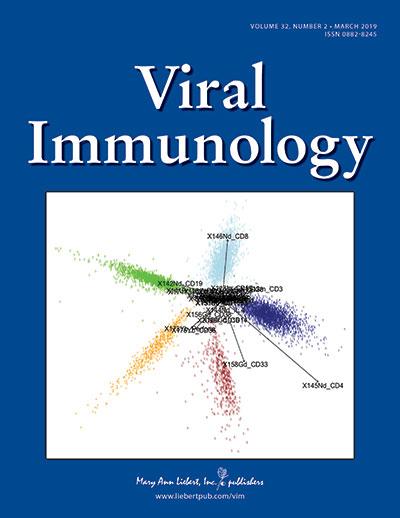
Credit: Mary Ann Liebert, Inc., publishers
New Rochelle, NY, March 21, 2019–Researchers have described a new mechanism by which influenza A viruses (IAV) alter the host immune system and make them more or less susceptible to often deadly co-occurring bacterial infections. The role of the PDZ-binding motif of IAV in susceptibility to bacterial superinfections (BSI) is presented in an article published in Viral Immunology, a peer-reviewed journal from Mary Ann Liebert, Inc., publishers. Click here to read the full-text article on the Viral Immunology website through April 21, 2019.
The Centers for Disease Control and Prevention (CDC) estimates that influenza kills 12,000-56,000 Americans each year. A major complication of influenza is the development of secondary bacterial infections, which exacerbate the severity of the disease.
A team of researchers led by Kelly Shepardson and Agnieszka Rynda-Apple, Montana State University, Bozeman, and Victor C. Huber, Sanford School of Medicine, University of South Dakota, Vermillion, demonstrated that the PDZ-bm determines the hosts susceptibility to BSI by controlling production of the cytokines IFN-α/ß. This newly identified mechanism of action for manipulating host immunity and controlling BSI severity specifically involves the regulation of IFN-ß. It is described in detail in the article entitled “A Novel Role for PDZ-Binding Motif of Influenza A Virus Nonstructural Protein 1 in Regulation of Host Susceptibility to Postinfluenza Bacterial Superinfections.”
“In the current issue of Viral Immunology, Shepardson and colleagues show that the non-structural-1 protein (NS1) of the virus can regulate innate immunity and susceptibility to secondary bacterial infections. Deletion of a key section of the NS1 from the virus resulted in 100% survival and decreased bacterial burden in superinfected mice,” says David L. Woodland, PhD, Editor-in Chief of Viral Immunology and Adjunct Member of the Trudeau Institute in Saranac Lake, NY. “These finding suggest that NS1 regulates the time dependent type I interferon response during influenza virus infection, which in turn determines susceptibility to secondary bacterial infections.”
###
Research reported in this publication was supported by grants from National Institutes of Health under Award Numbers R01 AI04905, R21 AI119772, P30GM110732, P20GM103474-18, P20GM103443, and R44 AI117976-01A1. The content is solely the responsibility of the authors and does not necessarily represent the official views of the National Institutes of Health.
About the Journal
Viral Immunology is an authoritative peer-reviewed journal published ten times a year in print and online. Topics cover both human and animal viral immunology, exploring viral-based immunological diseases, pathogenic mechanisms, and virus-associated tumor and cancer immunology. The Journal includes original research papers, review articles, and commentaries covering the spectrum of laboratory and clinical research and exploring developments in vaccines and diagnostics targeting viral infections. Tables of content and a sample issue may be viewed on the Viral Immunology website.
About the Publisher
Mary Ann Liebert, Inc., publishers is a privately held, fully integrated media company known for establishing authoritative peer-reviewed journals in many promising areas of science and biomedical research, including Journal of Interferon and Cytokine Research, AIDS Research and Human Retroviruses, and Biosecurity and Bioterrorism: Biodefense Strategy, Practice, and Science. Its biotechnology trade magazine, GEN (Genetic Engineering & Biotechnology News), was the first in its field and is today the industry’s most widely read publication worldwide. A complete list of the firm’s 80 journals, books, and newsmagazines is available on the Mary Ann Liebert, Inc., publishers website.
Media Contact
Kathryn Ryan
[email protected]
Original Source
https:/
Related Journal Article
http://dx.




